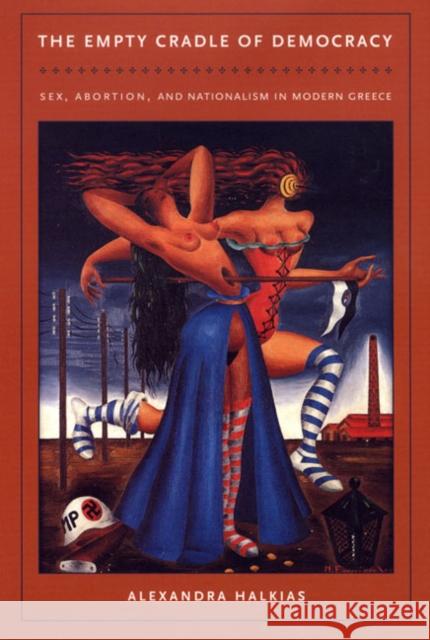The Empty Cradle of Democracy: Sex, Abortion, and Nationalism in Modern Greece » książka
The Empty Cradle of Democracy: Sex, Abortion, and Nationalism in Modern Greece
ISBN-13: 9780822333111 / Angielski / Twarda / 2004 / 432 str.
The Empty Cradle of Democracy: Sex, Abortion, and Nationalism in Modern Greece
ISBN-13: 9780822333111 / Angielski / Twarda / 2004 / 432 str.
(netto: 501,71 VAT: 5%)
Najniższa cena z 30 dni: 502,10 zł
ok. 30 dni roboczych
Bez gwarancji dostawy przed świętami
Darmowa dostawa!
During the 1990s, Greece had a very high rate of abortion at the same time that its low birth rate was considered a national crisis. "The Empty Cradle of Democracy" explores this paradox. Alexandra Halkias shows that despite Greek Orthodox beliefs that abortion is murder, many Greek women view it as "natural" and consider birth control methods invasive. The formal public-sphere view is that women destroy the body of the nation by aborting future citizens. Scrutiny of these conflicting cultural beliefs enables Halkias's incisive critique of the cornerstones of modern liberal democracy, including the autonomous "individual" subject and a polity external to the private sphere. "The Empty Cradle of Democracy" examines the complex relationship between nationalism and gender and re-theorizes late modernity and violence by exploring Greek representations of human agency, the fetus, national identity, eroticism, and the divine.
Halkias's analysis combines telling fragments of contemporary Athenian culture, Greek history, media coverage of abortion and the declining birth rate, and fieldwork in Athens at an obstetrics/gynecology clinic and a family-planning center. Halkias conducted in-depth interviews with one hundred and twenty women who had had two or more abortions and observed more than four hundred gynecological exams at a state family-planning center. She reveals how intimate decisions and the public preoccupation with the low birth rate connect to nationalist ideas of race, religion, freedom, resistance, and the fraught encounter between modernity and tradition. "The Empty Cradle of Democracy" is a startling examination of how assumptions underlying liberal democracy are betrayed while the nation permeates the body and understandings of gender and sexuality complicate the nation-building projects of late modernity.











